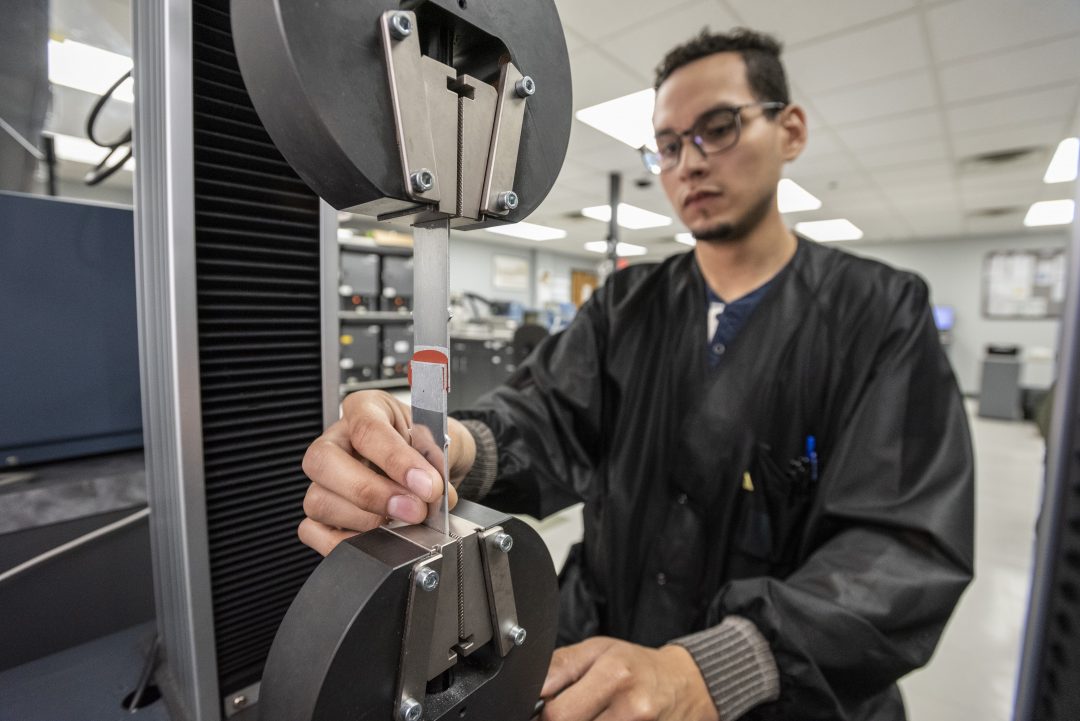Search this site
What’s Appli-Tec’s procedure for testing lap shear?
Testing an adhesive’s lap shear is important because it allows for a strength comparison between different adhesive materials on a known substrate.
For example, our Appli-Thane® 7300 urethane-based adhesive has a lap shear of 500 psi when tested on panels made from 2024-T3 Clad aluminum.
Appli-Thane® 7308, on the other hand, while exhibiting similar performance characteristics, has a lap shear of 300 psi for the same substrate.
Lap shear strength is also a good indicator if the material is suitable for structural applications, or better off as a coating or staking material.
Testing lap shear
The adhesive materials listed on the Appli-Tec website have been tested for lap shear using our proprietary test method based on ASTM D 1002.
Two strips of a substrate are bonded together with the adhesive. The strips are then placed on the instrument (Figure 1). The operator enters the parameters and the instrument then uses an opposing force to pull the strips apart until the adhesive bond breaks.

Figure 1: Testing lap shear in the Appli-Tec QC lab.
How to use lap shear data
The stated lap shear data for any adhesive isn’t definitive as the substrate used for the test may not correspond to real-life substrates.
Instead, use lap shear as a characterization tool to compare adhesives to each other or to compare lot-to-lot variation within a single adhesive.
As part of our service, we can perform lap shear testing using customers’ exotic substrates developed for specific aerospace applications. We can also recommend an adhesive material, or develop a custom formulation, based on your application requirements.
Defect-free adhesives, every time
We test every chemical that enters our facility by FTIR and then compare previous scans to ensure the chemical is the same – every time. Learn more about our rigorous in-house testing procedures.
New Applications
I want to discuss my application challenges, order samples, or place a first-time order.
Existing Applications
I need to reorder an existing part number, I have a BOM/Spec.

